Philips PUS8359 in the size of 50" is a fairly simple television, yet sufficiently advanced for a considerable number of consumers. Its most distinguishing feature (as is the case with the entire brand) is the Ambilight backlighting, which at this price point is definitely an added value and something that may encourage a purchase. In this price range, it is futile to search for something that provides impeccable picture quality, although we can look for models that offer something more. In our opinion, this is indeed the case with the tested television. In this context, we pay particular attention primarily to the quality of tonal transitions, colour accuracy after calibration, and the efficiency of the television when connected to a computer. Thanks to the low input lag, casual gaming will be quite enjoyable. However, we must also note the drawbacks of the unit. Undoubtedly, these will be the low luminance in HDR materials and the narrow coverage of the DCI-P3 colour gamut. Although it is worth noting that the dynamic tone mapping function works very effectively. We will also briefly mention contrast and black levels, which, although not outstanding, are certainly better than those in units based on IPS/ADS panels. The television's operating system can be considered one of the better ones, although it is still in development and lacks many features, as discussed in a dedicated section. It also does not have as wide a library of applications as its competitors, although this is likely to change soon. Who is PUS8359 for? One could say it is for anyone seeking a balance between quality and price.
- Matching (Score) |
- Our verdict |
- TV appearance |
- Where to buy |
- Contrast and black detail |
- HDR effect quality |
- Factory color reproduction |
- Color reproduction after calibration |
- Smoothness of tonal transitions |
- Image scaling and smoothness of tonal transitions |
- Blur and motion smoothness |
- Console compatibility and gaming features |
- Input lag |
- Compatibility with PC |
- Viewing angles |
- Daytime performance |
- Panel details |
- TV features |
- Apps |
- Playing files from USB |
- Sound
Philips PUS8359 (VA) vs Samsung Neo QLED QN90D / QN92D
Direct comparison
PUS8349 / PUS8359
Neo QLED / QN92D / QN90D
Available screen sizes: 50”


Panel type: LCD VA
Resolution: 3840x2160
System: Titan OS
Model year: 2024
Complete the survey to find out the result

Panel type: LCD VA (wide viewing angle)
Resolution: 3840x2160
System: Tizen
Model year: 2024
Complete the survey to find out the result

Overall rating
5.4
7.8
Movies and series in UHD quality
5.2
7.9
Classic TV, YouTube
5.4
7.9
Sports broadcasts (TV and apps)
4.5
7.7
Gaming on console
6.4
9.1
TV as a computer monitor
6.0
8.6
Watching in bright light
4.7
6.4
Utility functions
5.3
7.4
Apps
6.7
9.3
Sound quality
6.1
6.9
Complete the survey to find out what fits your preferences
Advantages
Colour reproduction after calibration
Dynamic tone mapping function - recovers details that are too bright for the television
Smooth tonal transitions
Very good compatibility with computers and consoles - low input lag, chroma 4:4:4
High brightness
Good contrast
Intuitive Tizen operating system
Great for gamers and sports fans (HDMI 2.1, 144Hz, low input lag)
Wide viewing angles - unusual for VA panels
Disadvantages
Low brightness of HDR materials
Lack of a significant number of essential applications
Poor viewing angles
No recording function
No DTS format support - this may be problematic for those using Blu-ray
Our verdict
Samsung offers two top models with 4K resolution when it comes to MiniLED technology. In this test, we took a closer look at the perhaps not so "high-end" QN95D, but rather the QN90D, which can also be found under the name QN92D. Samsung proudly calls its MiniLED televisions the NeoQLED series. It is precisely because of this technology that the television offers excellent contrast and high brightness, making movie watching an experience reminiscent of a true cinema. During everyday use, the Tizen system performed excellently. It is fast, intuitive, and allows seamless switching between applications. We also appreciated how well the television managed lower quality materials – traditional television and older films looked better than we expected, and the advanced image processing algorithms did their job. This is a television that truly enhances the reception of content that is not always in high resolution. The solar remote was a pleasant surprise for us. Although minimalist and with a limited number of buttons, it proved to be very practical – allowing us to control not only the television but also other devices, such as the decoder (Canal+) and the soundbar. This meant we could reduce the number of remotes on the table, which immediately improved usability. Additionally, solar charging – a simple idea that eliminates the need for battery replacements and aligns with ecological trends. As for the picture in different conditions, the television performs well in both bright and dark rooms. High brightness and numerous dimming zones handle most content, although sometimes in contrasty scenes a halo effect is visible. The colours are vibrant and natural, and the QLED coating adds intensity to them. For even better results, we opted for calibration – after which the picture looked even more detailed and natural, which only reinforced our belief that the QN92/QN90 is an excellent choice. And what about motion on the screen? It is absolutely smooth. The 144 Hz panel performs excellently with dynamic scenes – fast actions, sports, games – everything looks natural and without blurring. We particularly appreciated the Auto Motion Plus Game feature, which makes games running at 30 frames per second look smoother, resembling 45 frames, and at 60 Hz, motion becomes even more natural, as if operating at 90 Hz. For gamers, this is a significant advantage, especially since low input lag and features like game bar further enhance the gaming experience. This is a television that will perform well in any situation – from evening screenings to gaming marathons. The QN92D is a practical television, well-designed, and offering picture quality that is truly hard to ignore. An ideal choice for those looking for something more than just an ordinary screen for everyday content.
TV appearance









Contrast and black detail
5.6/10
7.9/10
Local dimming function: No
Local dimming function: Yes, number of zones: 504 (36 x 14)
Contrast:
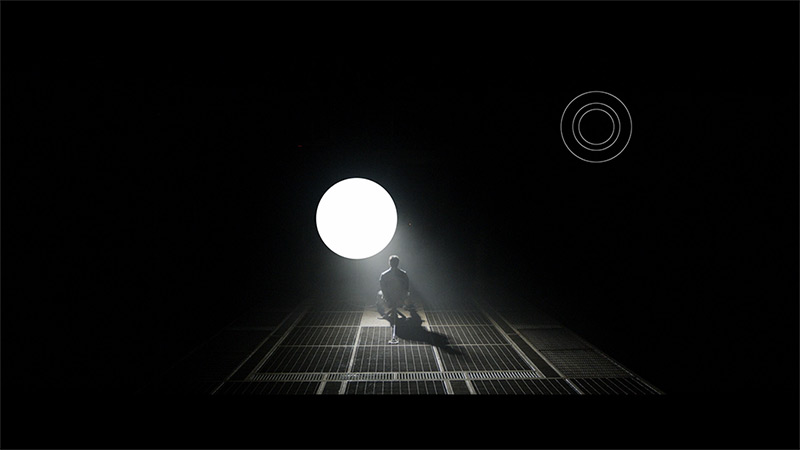
Result
4,400:1
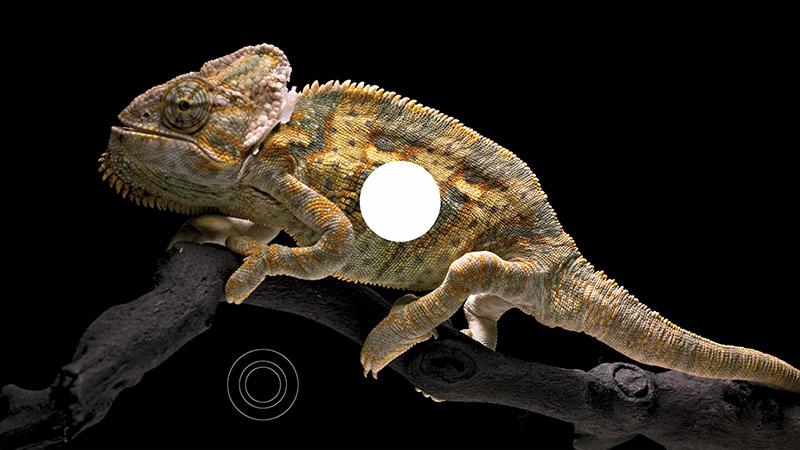
Result
4,950:1
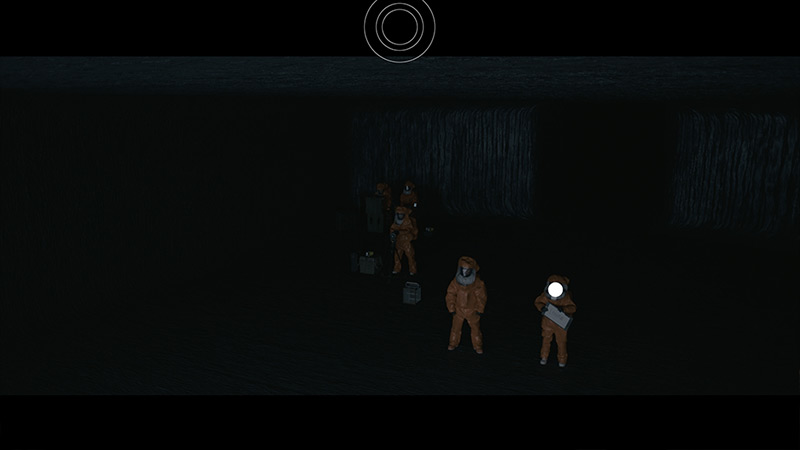
Result
4,500:1

Result
5,650:1
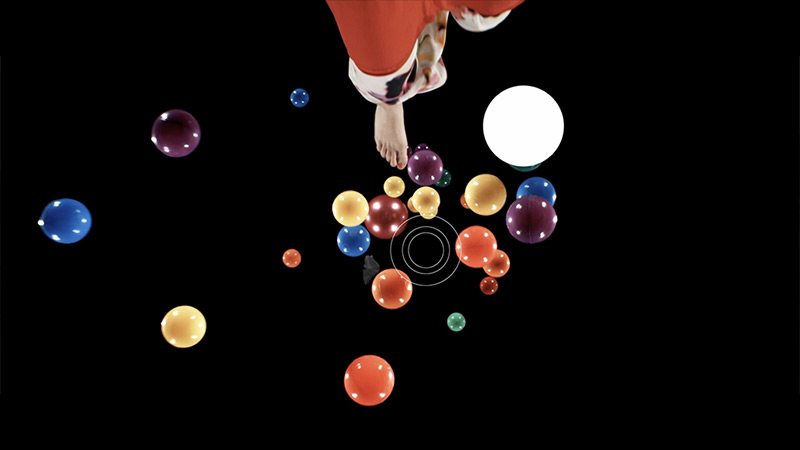
Result
3,800:1

Result
∞:1

Result
69,000:1

Result
∞:1

Result
5,500:1

Result
2,700:1
Halo effect and black detail visibility:


Check the visibility of bright lights on a dark background. Mini-LEDs often struggle with this. The photo does not compare black levels – that’s what the video below is for.
The video accurately shows differences in contrast and black levels between TVs, as well as potential issues: halo around bright objects or Mini-LED zone operation visible as brightness jumps.
Philips PUS8359/12 in the 50-inch version is equipped with a VA panel. We emphasise this quite strongly, as the manufacturer is known for using these interchangeably with IPS/ADS panels depending on the diagonal size. This is particularly important in the context of contrast and black levels, which are the fundamental criteria in evaluating image quality. The panel itself uses direct backlighting (Direct LED), although it has not been supported by any local dimming system, which is rather obvious when looking at the device's price range. Nevertheless, the use of this type of screen allows for achieving several rows of better black levels and contrast compared to the aforementioned panels that do not possess advanced backlighting systems. The simple design of the television positively influenced the visibility of details in blacks. Our first test scene from the film "Oblivion" demonstrated quite good black levels, but also excellent light separation, which is not an easy task even for much more expensive units. The second prepared material from the film Sicario 2 also presented itself in a fairly decent manner. Indeed, due to construction flaws, one can notice some backlight bleed, however, the details themselves are clearly visible and it is hard to fault them. The fact remains that the black levels could be deeper.
Samsung QN92D is one of the highest models of NeoQLED 4K (mini LED) from the Korean manufacturer for 2024. Although it does not offer as many local dimming zones as its more refined sibling Samsung QN92D, the number of 504 dimming zones in the 55-inch version is still impressive. The VA panel works well with this solution, providing excellent results in terms of contrast. The contrast in Samsung QN92D is outstanding for a non-OLED television. Even in challenging scenes, like those from the films "Oblivion" or "Arrival", the contrast is nearly infinite and can compete with the best televisions in the OLED segment, which is quite rare among LED-backlit televisions. However, mini LED technology has its limitations compared to organic panels, which can lead to certain issues. For example, on the latest test pattern from Pioneer, the television struggles significantly. This may be due to a very aggressive dimming algorithm, causing the mini LED lights to sometimes be unable to "decide" what to do – whether to illuminate certain elements or maintain black levels. Despite these shortcomings, Samsung QN92D is one of the best LCD televisions in terms of contrast and black levels.
HDR effect quality
4.6/10
6.7/10
Luminance measurements in HDR:

Result
281 nit
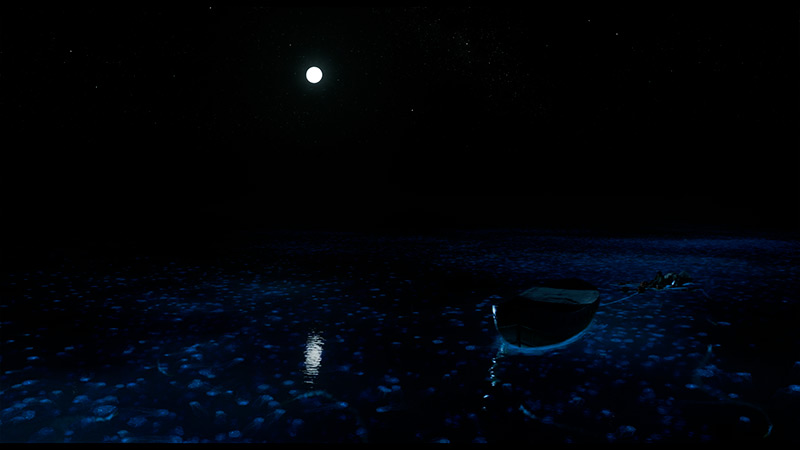
Result
280 nit
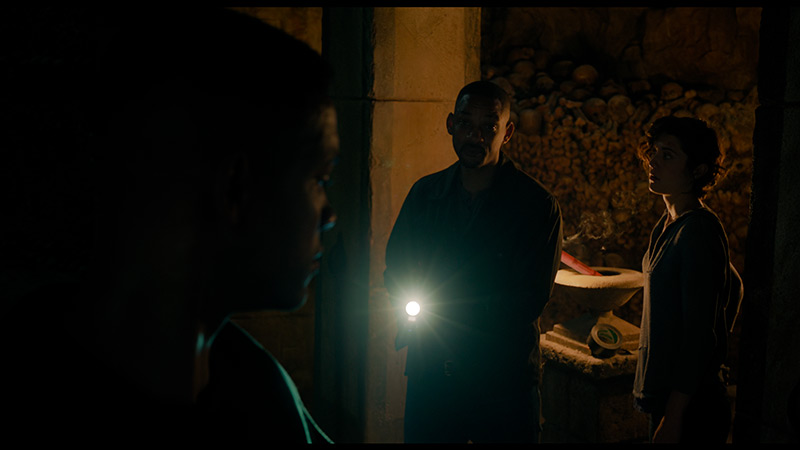
Result
324 nit
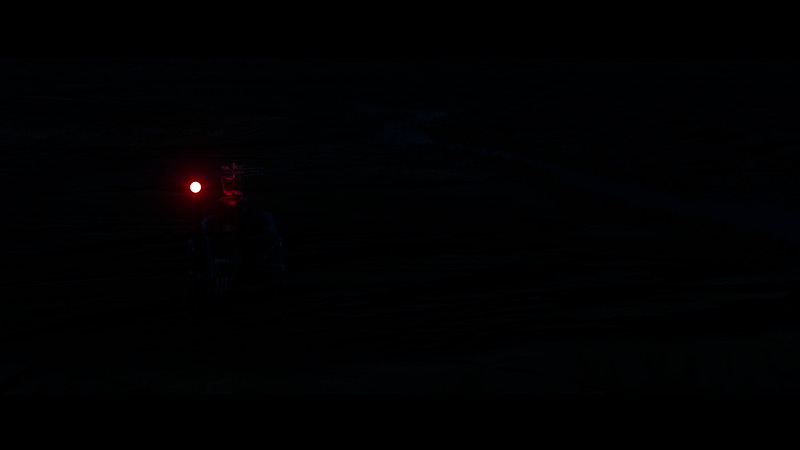
Result
290 nit

Result
320 nit

Result
1947 nit

Result
617 nit

Result
738 nit

Result
271 nit

Result
1479 nit
Scene from the movie “Pan” (about 2800 nits)


Scene from the movie “Billy Lynn” (about 1100 nits)


The photos show two HDR10 movies. 'Pan' is one of the brightest productions ever made, while 'Billy Lynn' (soldier) has brightness typical of streaming (Netflix, Prime, HBO MAX). Notice the intensity of effects and detail in whites.
Static HDR10


The photos present the visibility of white details in various HDR formats. They do not show brightness differences between TVs (these can be compared in the previous gallery).
HDR luminance chart:
Samsung Neo QLED QN90D / QN92D
Philips PUS8359 (VA)
Philips PUS8359 did not impress us with its results in HDR materials. This model is capable of generating a maximum brightness of 320 nits, and often even less. Such results, combined with a lack of support for HDR Dolby Vision, mean that the image will be significantly darker compared to the source material. Therefore, playing SDR materials will be more beneficial for this television. This is also suggested by the rather low coverage of the DCI-P3 colour gamut at 83%, which results in significant colour deficiencies. The fact remains that the television supports the HDR format based on dynamic metadata, although HDR10+ is such a niche format that it does not bring any significant advantages.
During synthetic tests, Samsung QN92D displayed its incredible capabilities in terms of brightness. The graphs clearly indicate that the television can achieve an impressive 2000 nits, giving it a solid power base to compete with the best models on the market. Such a result places it at the forefront, especially in the context of displaying HDR content, where brightness plays a crucial role. However, what happens when we transfer the tests to real film scenes? Under favourable conditions, such as the first scene from the film Life of Pi or the last scene where the image is entirely flooded with light, Samsung QN92D can achieve nearly laboratory results, impressing with its brightness. The situation looks different, however, when small, bright objects appear on a dark background, as in the fourth scene from the film Sicario. In such cases, the television does not perform as well – brightness drops several times, and the maximum values under the best conditions are around 600 NITS. Similar to the case with contrast, these limitations arise from the use of an aggressive local dimming algorithm. This algorithm aims to reduce the 'halo' effect around bright objects on a dark background, but often at the expense of overall brightness. As a result, while the television excels in brightly lit scenes, its ability to display full brightness is limited when it comes to small, vivid elements.
Factory color reproduction
4/10
6.1/10


This gallery shows how colors change after professional TV calibration. If you notice the difference, we recommend ordering this service at SkalibrujTV.com.
Factory Mode
After calibration


This gallery shows how colors change after professional TV calibration. If you notice the difference, we recommend ordering this service at SkalibrujTV.com.
Factory Mode
After calibration
The best factory mode in terms of fidelity to the source material was "Film". This was the mode we used during our tests. Just like each of the factory modes in televisions, it had its shortcomings. We will check what exactly was wrong in both SDR and HDR materials. In both cases, the white balance showed excessive dominance of the green and red colour combination. This created a yellow tint that spread across the entire image, causing issues such as yellowed whites and problems with skin tones. This situation was perfectly illustrated on the "ColourChecker" palette, where each of the tested samples was pushed into its warmer counterparts. The foundation of the image is primarily contrast and black. These are represented by gamma charts and the EOTF curve. Looking at the first one, we can see a true rollercoaster, as we can observe both an elevated and a lowered gamma. The heavily elevated gamma caused visibility issues in blacks, while the lowered gamma led to a dramatic drop in contrast. In this context, the EOTF curve performed significantly better, only slightly brightening the image.
The best mode that consistently reproduces colours on the Samsung QN92D is, as it has been for years, the Filmmaker mode. Although it generally offers decent colour quality, it is not without significant issues. Let’s start with the analysis of images in HD/SDR quality. The biggest challenge here is white balance – the graphs show considerable instability, with a pronounced red dominance, making the image too warm. This distortion causes shades to be unnaturally shifted towards warmer tones, which can negatively affect the perception of materials with natural colours. The contrast, based on the gamma graph, although not the worst, remains far from ideal, impacting the overall image quality, especially in darker scenes.
This problem persists with 4K materials, such as series or movies of higher quality. In this case, the white balance also proves faulty, with noticeable deficiencies in blue and red colour, leading to tonal shifts. Tests using the Colour Checker tool confirm these issues – all colours tend to shift towards yellow tones, further distorting the natural appearance of the image. Although the Filmmaker mode is one of the best available modes for watching cinematic content, it still requires improvements, especially concerning colour accuracy and white balance.
Color reproduction after calibration
5/10
8.7/10


The photos show how movies look on the TV. Pay attention to black detail visibility, colors, and shadow tint.


The photos show how movies look on the TV. Pay attention to black detail visibility, colors, and shadow tint.
Philips offers a wide range of image calibration tools in both its more expensive and cheaper models. We utilised these tools and got to work, which was not as easy as many of you might think. While we were able to model the white balance, significantly improve the gamma, and refine the EOTF curve in both cases, the deltaE errors remained extremely high. There are several reasons for this situation, which are directly related to the low coverage of the DCI-P3 palette and the maximum brightness of the unit in HDR materials.
After calibration, the Filmmaker mode on the Samsung QN92D television shows significant improvement, particularly in terms of SDR content. The white balance has been greatly enhanced – the previous colour misalignment and dominance of red have been eliminated, resulting in a more natural colour reproduction. In terms of brightness, although the gamma chart did not require significant adjustments, it has been stabilised, which affects overall picture quality.
Regarding high-quality materials, the white balance has also improved in this case. However, it is important to note the contrast. The EOTF curve, which illustrates values in this area, initially seems correct. However, when we look at the details, the television struggles to maintain appropriate contrast in film materials. The EOTF curve reveals certain discrepancies, suggesting that despite advancements, there are still areas needing improvement in this aspect. The television still strives for excellence in contrast reproduction. One advantage of this television is colour saturation. Skin tones are rendered very well, and although some colours can be slightly oversaturated, the final effect looks truly appealing – the colours appear rich and vibrant.
Despite some shortcomings in contrast, after calibration, the Filmmaker mode on the Samsung QN92D offers excellent picture quality, with natural colour reproduction, making it a great choice for watching films.
Smoothness of tonal transitions
7.4/10
9/10






These are selected scenes that show smooth tonal transitions from one color to another. If you see distinct banding, it’s the TV panel’s fault.


These are selected scenes that show smooth tonal transitions from one color to another. If you see distinct banding, it’s the TV panel’s fault.


These are selected scenes that show smooth tonal transitions from one color to another. If you see distinct banding, it’s the TV panel’s fault.


These are selected scenes that show smooth tonal transitions from one color to another. If you see distinct banding, it’s the TV panel’s fault.
The fluidity of gradation in PUS8359 is at a good level. Practically every scene has preserved tonal transitions. The most challenging scene, the second one from the film "The Green Knight", did not prove to be the proverbial "killer" and allowed us to demonstrate that the tested television, considering its price range, performs excellently. The only issue we could "pick at" is the darkest scenes, where some inconsistencies can be seen here and there; however, this is rather selective. Either way, we rate the fluidity of tonal transitions very well. We must also mention that this function is not available in HDR materials.
The fluidity of tonal transitions in the TV Samsung QN92D is excellent, making the image appear remarkably natural, without noticeable disturbances. In scenes with complex colour gradations, the TV performs superbly, ensuring smooth and uniform transitions. Competing OLED TVs in a similar price range can successfully take a cue from this, as the Samsung QN92D offers quality that places it on par with models equipped with QD-OLED matrices.
Image scaling and smoothness of tonal transitions
6/10
7.2/10
Smooth transition function


The match photo shows how the TV smooths weak tonal transitions in low-quality video.
Image scaling SD (576i)


The model photo shows how it handles upscaling of SD material.
In this paragraph, we will take a look at two functionalities. We will once again examine the feature responsible for tonal transitions, but we will also check how the television performs with image scaling. The option responsible for smooth gradation is called "Distortion Reduction". As we have established, it quite effectively smooths out the inconsistencies. However, we must point out two things: we cannot enable it for HDR materials and that it blurs details in films.
The tested television cannot boast of the best image scaling. There is a noticeable overall blurriness of the image, but worse still, it blurs details. This is particularly evident on the branches and the model's hair. A characteristic white halo around the character is also visible.
Let’s check how the Samsung QN92D television performs with tonal transitions in very poor quality materials. The noise reduction feature demonstrates good effectiveness, improving the smoothness of tonal transitions even in challenging conditions. However, it should be noted that, as with other Samsung televisions, the effectiveness of this feature may lead to the removal of desirable elements, such as film grain, which can sometimes affect the authenticity of the image.
Regarding digital processing, the Samsung QN92D television also performs excellently. During testing, the image was presented very well, with the model shown in a natural and correct manner. Details such as branches in the background were reproduced with great precision, highlighting the television's ability to enhance the quality of low-resolution materials.
Blur and motion smoothness
3.8/10
7.5/10


Blur (native resolution, maximum refresh rate):






Blur (BFI function enabled):
Image flickers in this mode



Philips PUS8359 will not be the best television for sports. The reason for this is the lack of implementation of even the basic motion smoothing feature, which was to be expected given the price of the device. We also note that we are dealing with a VA panel, whose sharpness is not of the highest standard. This type of panel is mainly associated with high contrast, which goes hand in hand with quite a slow response time, as clearly indicated by the matrix analysis results. As you can see from the images captured in rapid motion, the picture is typically blurred for this type of panel. Although it may not be the ideal option, it can be used conditionally for watching sports; however, one must keep in mind the less than optimal sharpness in motion. It is worth mentioning that films will exhibit judder, as the television does not have any motion smoother, even the simplest one.
The Samsung QN92D television is equipped with a 144 Hz panel; however, when watching content using the smoothness feature, the maximum refresh rate is 120 Hz. This means that both gamers and those who watch a lot of sports will be satisfied with the picture quality. It is also worth mentioning the available image enhancement options, such as the "blur and judder reduction" feature, which allows users to adjust the smoothness to individual preferences on a 10-point scale. Blur reduction is responsible for increasing the sharpness of quickly moving objects, while judder reduction smooths motion, eliminating the "stutter" effect. Thanks to these advanced settings, optimal visual experiences can be achieved, making the Samsung QN92D ideal for both dynamic scenes and intense gaming sessions.
In terms of motion blur, the television performs really well, and it is hard to find anything to criticise. The only comment we might have is a slight overshoot effect noticeable on dark backgrounds during our test with "Ufoludkiem". Nevertheless, with the advanced smoothness settings, the Samsung QN92D is perfect for both dynamic scenes and intense gaming sessions.
Console compatibility and gaming features
4.7/10
9.5/10
- ALLM
- VRR
- VRR range6048 - 144Hz
- Dolby Vision Game Mode
- Correct implementation of HGIG
- 1080p@120Hz
- 1440p@120Hz
- 4K@120Hz
- Game bar








It will not be a surprise if we write that Philips PUS8359/12 only offers the most basic support for consoles. Once the console is connected, we can count on features such as: VRR and ALLM. This is quite pleasing in the case of the former, as experience has shown that even in more expensive units there can be issues with this. A nice touch is the implementation of a special GameBar that allows for changing settings on the "fly," so we won't have to exit the game and unnecessarily distract ourselves. This feature also allows for adapting gameplay to the needs of people with disabilities, which will certainly be extremely useful.
The Samsung QN92/QN90 television is an excellent choice for avid gamers, worthy of the highest recommendations. This model offers virtually all the features available on the market in terms of gaming, making gameplay even more exciting. One of its key features is the 120 Hz panel, which provides exceptional motion smoothness, vital during dynamic action games. The television also has low input lag, ensuring lightning-fast responses to player commands. Additionally, technologies such as VRR (Variable Refresh Rate) and ALLM (Auto Low Latency Mode) adjust the refresh rate and automatically switch the television to game mode, enhancing the gaming experience even further. An additional advantage is the Xbox app, which allows playing favourite titles directly on the television, eliminating the need for a console. This is a typical feature of Samsung televisions, which makes them unique in the gaming world.
Auto Motion Plus Game is a feature that truly deserves praise for Samsung. It is a motion smoother that performs excellently in games, allowing for the perception of a higher frame rate – a 30 frames per second image looks like 45, and 60 Hz becomes close to 90 Hz. Importantly, this feature does not introduce significant lag (input lag does not exceed 25 ms), so it does not negatively affect gaming comfort, unlike many other motion smoothers available on the market. As a result, players can enjoy a significantly smoother image without compromising on responsiveness.
Input lag
10/10
9.9/10
SDR
HDR
Dolby Vision
The measured input lag after connecting to the console was very good and there was nothing to complain about. Both at the FHD and 4K settings, we measured delays at the level of 12ms, and by adding the HDR format at the higher resolution, the lag dropped to 11ms. Each of these results should be considered more than satisfactory, as such a level allows for gameplay that is virtually without delays at the level of controller-eye-screen.
The input lag category is crucial for gamers, and the Samsung QN90D performs exceptionally well in this aspect. Input lag values below 13 ms are impressive, which means that the delay between pressing a button on the controller and the response on the screen is minimal. Such a low value allows for smooth and responsive gaming experiences, which is sure to please both casual gamers and professionals for whom every millisecond of reaction time counts. This makes the Samsung QN92D an excellent choice for those who value precision and speed in gameplay.
Compatibility with PC
6/10
8.6/10


The photo shows the legibility of small fonts. Ideally, lines should be the same thickness on both light and dark text, with minimal pixel gaps.
Connecting the Philips PUS8359 to a computer will not pose significant complications in the context of gaming. The latency is at a very good level, and working with 4K HDR settings was associated with an 11 ms input lag, which is a value that is imperceptible along the eye-screen-mouse line. The tested television also supports chroma 4:4:4, which means working with text files will not create any inconveniences. This model does not support G-Sync and offers a refresh rate of 60 Hz, which may be a considerable drawback for PC gamers. The rating in terms of gaming is therefore lower, although the device performs excellently in everyday office tasks.
The television stands out with high performance, supporting chroma 4:4:4 and offering exceptionally low input lag. These features allow users to enjoy fluidity and responsiveness, making it an excellent choice for office work and everyday applications. However, one noticeable drawback is the poor visibility of horizontal lines on dark backgrounds. On the test pattern, the letters on the right appear more like vertical lines, which can be frustrating for some users. Nevertheless, the television generally works well with computers, providing comfort in performing daily tasks. It is also worth mentioning in this paragraph the "Remote PC" feature; thanks to Microsoft's collaboration with the Korean giant, we can pair Windows PCs seamlessly and use Office 360 applications.
Viewing angles
3.4/10
7.1/10
The drop in brightness at an angle of 45 degrees is 65%. This means that even a slight shift from the centre of the screen can cause discomfort associated with colour degradation and image washing out. This is rather a characteristic feature of the vast majority of VA panels that do not have an angle coating.
In the case of TVs with VA panels, one can usually expect limited viewing angles; however, Samsung QN90D surprises in this category. Thanks to the applied coating that widens the viewing angles, the television offers truly good performance, which is rarely seen in devices with this type of panel. Although VA panels are not usually the best in this regard, in this model the picture remains clear and vibrant even when viewed from the side, making it an excellent choice for larger rooms and group viewing.
Daytime performance
4.7/10
6.4/10




Panel brightness
Samsung Neo QLED QN90D / QN92D: 629 cd/m2
Philips PUS8359 (VA): 318 cd/m2
The screen Philips PUS8359/12 has a satin finish. Such a finish allows for quite good efficiency in keeping light reflections under control and provides a fairly comfortable viewing experience during the day. It is worth mentioning that the maximum brightness of the television in SDR content is around 320 nits, which is a reasonably good result, especially considering that the brightness is maintained even at 100% screen fill with white.
The television performs excellently in bright rooms due to its high brightness, especially when watching standard television. A constant brightness level of 600 nits ensures excellent visibility even in intense daylight. Unfortunately, despite the use of a satin finish, handling reflections is average, which may affect viewing comfort. An additional downside is the matrix that improves viewing angles, which causes reflections of sunlight to spread vertically, potentially further reducing viewing comfort in a bright environment.
Panel details
Subpixel Structure:


Panel uniformity and thermal imaging:
Philips PUS8359 (VA)
Samsung Neo QLED QN90D / QN92D
TV features
5.3/10
7.4/10
- HDMI inputs3 x HDMI 2.0, 0 x HDMI 2.10 x HDMI 2.0, 4 x HDMI 2.1 48Gbps
- OutputsToslink (Optical audio), eARC (HDMI), ARC (HDMI), Mini-Jack (Headphones)Toslink (Optical audio), eARC (HDMI), ARC (HDMI)
- Network InterfacesWi-Fi 2.4GHz, Wi-Fi 5GHz, Ethernet (LAN) 100MbpsWi-Fi 2.4GHz, Wi-Fi 5GHz, Ethernet (LAN) 100Mbps
- TV receptionDVB-T, DVB-T2, DVB-S, DVB-S2, DVB-CDVB-T, DVB-T2, DVB-S, DVB-S2, DVB-C
Classic features:
- Recording to USB (terrestrial TV)
- Recording programming
- Picture in Picture (PiP)
- RF remote control (no need to aim)
- Backlit remote control
- Teletext
- Audio only mode
- Bluetooth headphones support
- Simultaneous Bluetooth headphones & TV audio
Smart features:
- AirPlay
- Screen mirroring (Windows Miracast)
- Voice search
- Voice search in native language
- Ability to connect a keyboard and mouse





It is impossible not to mention the manufacturer’s biggest distinguishing feature of their televisions first. Of course, we are talking about the multicoloured Ambilight backlighting, which, located on the back of the device, displays colours adapted to what is happening on the screen, often allowing for an even greater immersive experience. The operating system responsible for the television’s operation is Philips' proprietary system charmingly named TitanOs. It is definitely more closed off and limited in terms of available applications compared to the televisions from this manufacturer that are based on GoogleTV. Besides the lack of significant applications, its closed nature is also evident in another respect. We will not be able to perform such basic functions as programming recordings or recording to USB. Users of Apple devices may also feel disappointed by the absence of the AirPlay feature, which allows for easy screen streaming. Fortunately, there is no shortage of the option to connect a keyboard and mouse for more efficient navigation through the television menu. It is also worth mentioning that there is the possibility to connect headphones, but only wired ones. If we connect them, we can also play sound through the television's speakers. It is also worth adding that the control of the television occurs via IR, not Bluetooth, which is quite inconvenient these days.
In summary: TitanOs has quite a few "buts", especially when we are aware users needing and using many streaming platforms. It is rather an option for those limiting themselves to the so-called holy trinity, namely Netflix, YouTube, and CDA.
The Samsung QN92D television stands out with its modern Tizen operating system, which offers users an intuitive and visually pleasing environment. Tizen ensures smooth and quick browsing of applications, significantly enhancing the comfort of using the television. With its extensive ecosystem, users can easily connect the QN92D to other devices. The television supports numerous features that facilitate everyday use, such as controlling set-top boxes with the remote, eliminating the need for multiple remotes. Thanks to the AirPlay feature, Apple device users can seamlessly stream media from their iPhone. Additionally, there is a remote PC function that allows users to utilise their computer on a large screen, as well as the Office 365 application, making the QN92D an ideal solution for both work and entertainment.
Furthermore, like many Samsung televisions, the QN92D offers an Ambient Mode feature that allows users to customise the appearance of the television to blend with the surroundings. Users can display a variety of images or information, making the television an elegant part of interior decor even when not in use. Speaking of decor, it is certainly worth mentioning the device's appearance. It is truly very slim, around 2cm at its thickest point, which is impressive. The metal frame undoubtedly gives the impression of a premium device, and the stand included in the package is sturdy.
However, for those using traditional television, the QN92D may prove to be somewhat disappointing, as the Polish market lacks the feature for recording television programmes. Nevertheless, the television offers a PiP (Picture-in-Picture) function that allows simultaneous viewing of two programmes at the same time. The Samsung QN92D is a richly functional television that meets the needs of both gaming enthusiasts and multimedia users, while also aesthetically fitting into modern interiors.
Apps
6.7/10
9.3/10














































Playing files from USB
8/10
9.1/10
Supported photo formats:
Maximum photo resolution:


The default media player built into Philips PUS8359/12 offers quite a wide range of capabilities, but it also has its limitations. It plays virtually all video formats, with the obvious exception of Dolby Vision and the less obvious .asf, which is not commonly encountered. However, the issue lies in the lack of support for the H.265 HEVC codec at high bitrate. When it comes to photos, the player performs adequately, but it lacks support for some popular resolutions and formats, such as HEIC, which is used on Apple devices. The player excels at audio playback, where there is nothing to complain about. Unfortunately, due to system limitations, there is no option to expand the features, meaning we are left with what the manufacturer has provided.
The built-in player in QN90D should satisfy a large portion of users. It will easily play most popular video and audio formats. However, more demanding users may notice some shortcomings – it is not possible to play photos in HEIC format, popular on Apple devices, as well as a few other, less widespread photo formats.
Sound
6.1/10
6.9/10
- Maximum volume--
- Dolby Digital Plus 7.1
- Dolby True HD 7.1
- Dolby Atmos in Dolby Digital Plus (JOC)
- Dolby Atmos in Dolby True HD
- DTS:X in DTS-HD MA
- DTS-HD Master Audio
The built-in audio system in Philips PUS8359 consists of a basic connection of speakers, 2x 10 W each. As you can probably guess, not much can be expected from such a configuration. Nevertheless, if we do not exceed 50% of the maximum volume, it will not present negative thoughts. We definitely recommend connecting even cheaper soundbars. These, due to a range of codecs provided by the manufacturer, will certainly work very well. The implementation of Dolby Atmos and DTS-HD Master Audio is worth mentioning.
The television is equipped similarly to the QN95 with a 4.2.2 speaker system with a total power of 70W (the exception here is the 50' variant with a 2.2 layout and the 43' with a 2.0 layout). Despite its very slim casing, the television delivers loud and clear sound, and the overall balance is good. We deducted points as standard, just like with any other Samsung model, for the lack of DTS format support. It is also worth mentioning the proprietary Q-Symphony feature, which allows synchronising the television sound with Samsung's soundbar.
